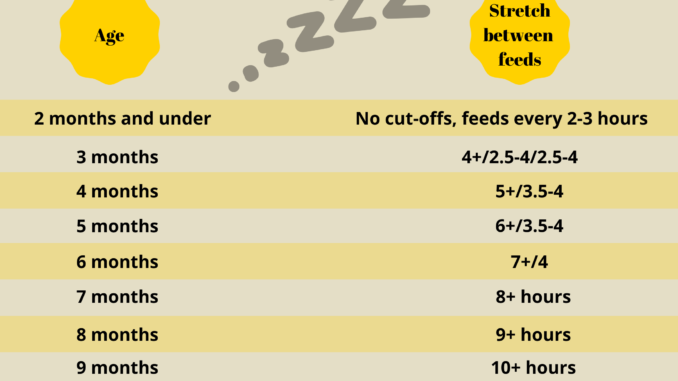
For new parents, one of the most challenging aspects of parenting can be the lack of sleep that comes with caring for a newborn. However, as a child grows, it is expected that they will begin sleeping through the night. But when is a child old enough to be sleeping through the night? In this article, we will explore the factors that contribute to a child’s ability to sleep through the night and provide tips for parents to encourage their child to develop healthy sleep habits.
What Is Sleeping Through The Night?
Sleeping through the night is defined as a period of uninterrupted sleep for a duration of six to eight hours. For infants, this period typically begins between three and six months of age, while older children should be able to sleep through the night by the age of six.
Factors That Affect A Child’s Ability To Sleep Through The Night
There are several factors that can affect a child’s ability to sleep through the night. These include:
Age: As mentioned above, the age of the child is a critical factor in determining their ability to sleep through the night. Newborns and infants need to feed frequently throughout the night, but as they grow and their feeding needs decrease, they should be able to sleep for longer periods.
Sleep Environment: The environment in which a child sleeps can also affect their ability to sleep through the night. A comfortable and quiet sleeping space that is free from distractions can help a child sleep more soundly.
Nutrition: Ensuring that a child is well-nourished can also contribute to their ability to sleep through the night. A child who is hungry or not getting enough calories may wake up during the night seeking food.
Sleep Associations: Sleep associations are the habits or objects that a child associates with sleep, such as a pacifier or a favorite blanket. These associations can make it difficult for a child to fall back asleep on their own if they wake up during the night.
Tips To Encourage Healthy Sleep Habits
Establish a consistent sleep routine: A regular sleep routine can help children prepare for sleep and signal to their bodies that it’s time to rest. A bedtime routine can include activities such as a bath, storytime, and soothing music.
Create a comfortable sleep environment: The sleep environment should be cool, quiet, and dark. A comfortable mattress and bedding can also contribute to a restful night’s sleep.
Avoid over-stimulating activities before bedtime: Activities such as screen time or physical play can overstimulate a child and make it difficult for them to fall asleep. Instead, encourage quiet activities such as reading or drawing before bedtime.
Encourage healthy eating habits: Providing a nutritious diet that is balanced in carbohydrates, protein, and healthy fats can help regulate a child’s appetite and ensure they are not waking up hungry during the night.
Minimize sleep associations: While sleep associations can be comforting for a child, they can also make it difficult for them to fall asleep on their own. Gradually phasing out sleep associations such as a pacifier or a parent’s presence can help encourage independent sleep.
Be consistent: Consistency is key when it comes to encouraging healthy sleep habits. Establishing a regular sleep routine and sticking to it can help children develop healthy sleep habits that will last a lifetime.
Conclusion
Sleeping through the night is an important milestone for both children and parents. While the timing of when a child is old enough to sleep through the night varies, there are several factors that contribute to their ability to do so. By providing a comfortable sleep environment, encouraging healthy eating habits, and establishing a consistent sleep routine, parents can help their child develop healthy sleep habits that will serve them well throughout their lives.
Leave a Reply